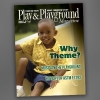Nature deficit disorder is a term coined by author Richard Louv in his book "Last Child in the Woods" to describe the modern phenomenon of children and adults spending less time outdoors, resulting in a range of behavioral and psychological issues. It suggests that a lack of exposure to nature can lead to a variety of problems, including attention difficulties, obesity, stress, and diminished creativity. While not a medical diagnosis, the concept highlights the importance of connecting with the natural world for our overall well-being.
In today's digital age, many people, especially children, are spending more time indoors engaging with screens rather than exploring the great outdoors. Factors such as urbanization, increased screen time, and safety concerns have contributed to this disconnect from nature. As a result, individuals may miss out on the physical, emotional, and cognitive benefits that spending time in nature provides, such as reduced stress, improved mood, and enhanced cognitive function.
Research has shown that nature play has numerous positive effects on mental and physical health. For example, spending time outdoors has been associated with lower levels of cortisol, the stress hormone, as well as improved attention and cognitive function. Additionally, outdoor activities like hiking, gardening, and simply being in green spaces have been linked to increased feelings of happiness and well-being.
Addressing nature deficit disorder requires a multifaceted approach that includes encouraging outdoor play and exploration, incorporating nature-based activities into education and recreation programs, and advocating for the preservation of natural spaces. By reconnecting with nature, individuals can reap the myriad benefits it offers, fostering a greater sense of connection to the world around them and promoting overall health and well-being.










